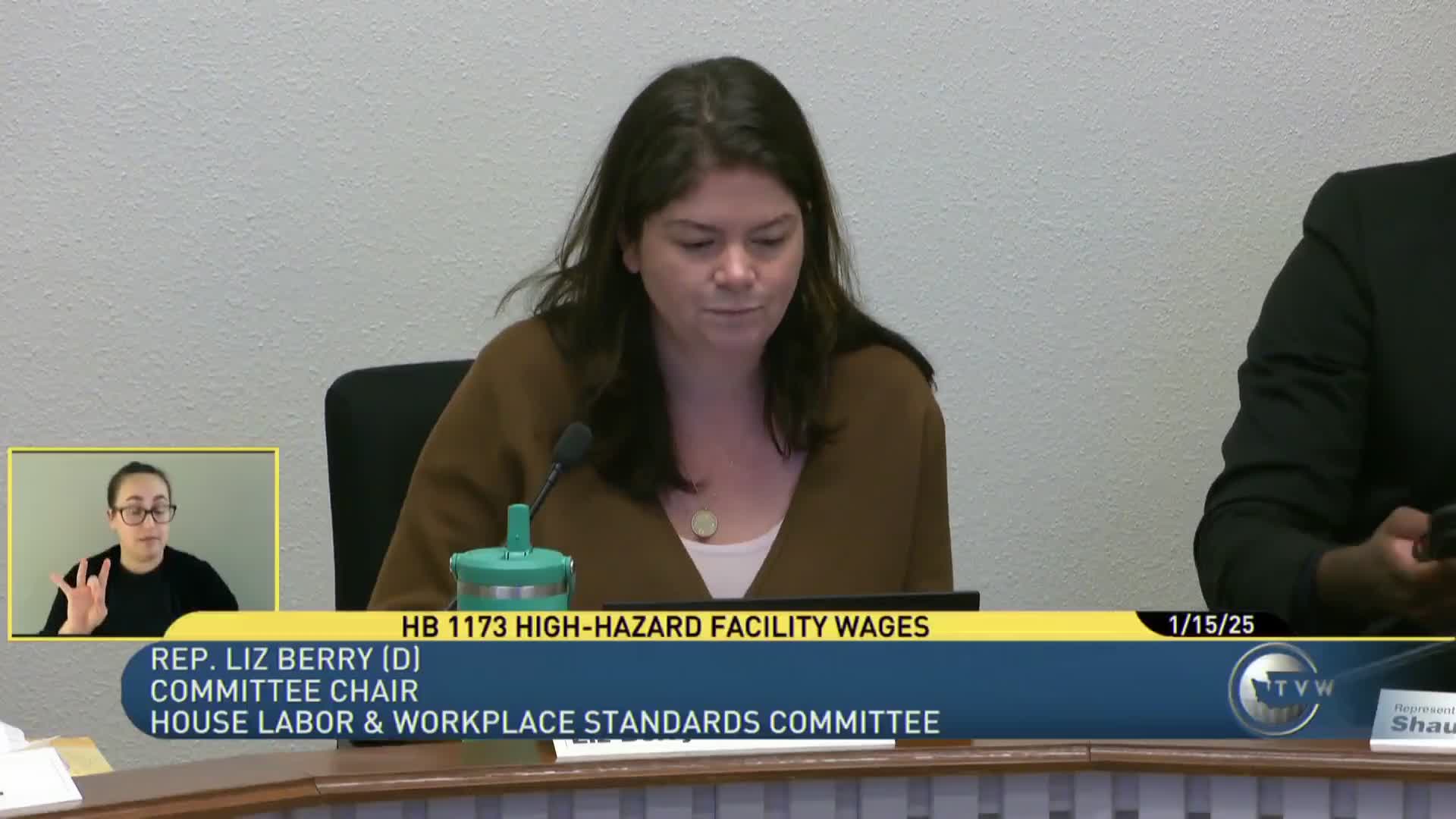Bill would create childcare workforce standards board to set pay and working conditions
Get AI-powered insights, summaries, and transcripts
Subscribe
Summary
HB 1128 would establish a Washington State Child Care Workforce Standards Board to set statewide compensation and working‑condition standards for child care workers; supporters argued the board could raise wages, reduce turnover, and coordinate small employers and workers; business groups and NFIB opposed, citing fiscal and regulatory concerns.
House Bill 1128 would create a Washington State Child Care Workforce Standards Board housed at the Department of Labor & Industries to investigate market conditions and adopt statewide standards for compensation and working conditions for child care workers. Committee staff said the board would include equal numbers of workers and employers and would set minimum standards after studying wages, benefits, and business models; initial wage standards would be adopted by Aug. 1, 2026, and initial employment standards would take effect Jan. 1, 2027.
Proponents included family child care providers, child‑care teachers and owners, national policy researchers, and parent advocates. Deanna Hanes, a bilingual child‑care center owner, described the field as “invisible work” and said owners and teachers struggle to pay bills despite the public benefit of care. David Madland of the Center for American Progress noted that similar standards boards in other states and cities have raised wages and improved benefits and turnover; he cited examples where boards reduced turnover in Nevada and other jurisdictions. Maya Washington of MomsRising recounted personal experience with unaffordable child care and said the board model could stabilize jobs and expand access for families.
Opponents included NFIB and the Association of Washington Business, which urged against creating an independent standards board that could impose new regulatory and fiscal burdens. NFIB argued the proposal would increase barriers to entry and cost small family providers; AWB referenced a similar California effort that had a large start‑up cost estimate. Some witnesses asked for more detail on financing and the board’s interaction with existing agencies such as DCYF and L&I.
Supporters emphasized the board’s ability to bring together workers, employers, parents, and agencies to set norms for wages, paid time off, and training, citing workforce shortages and high turnover in child care. The committee took testimony from both proponents and opponents and closed the hearing without amendment or vote.
